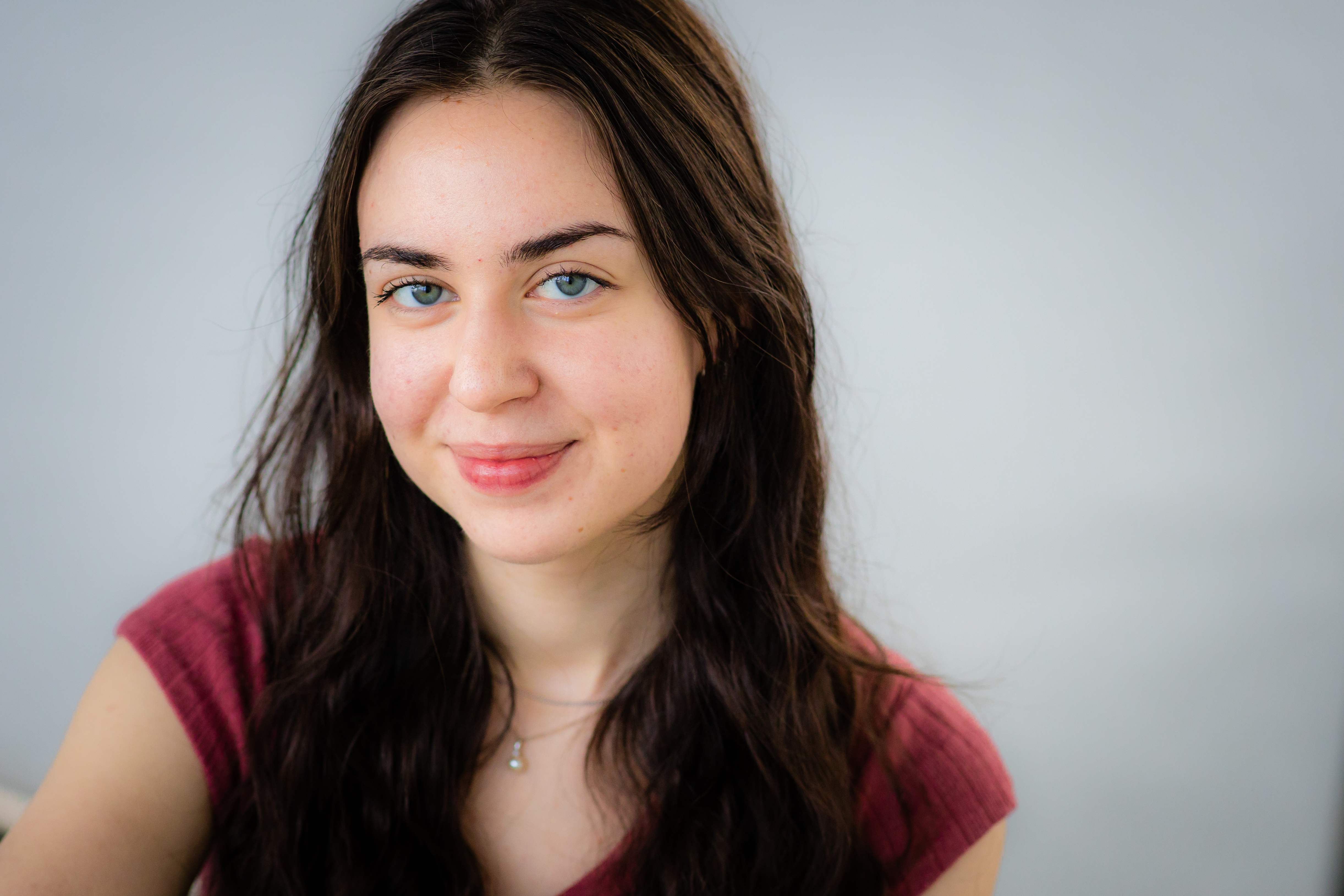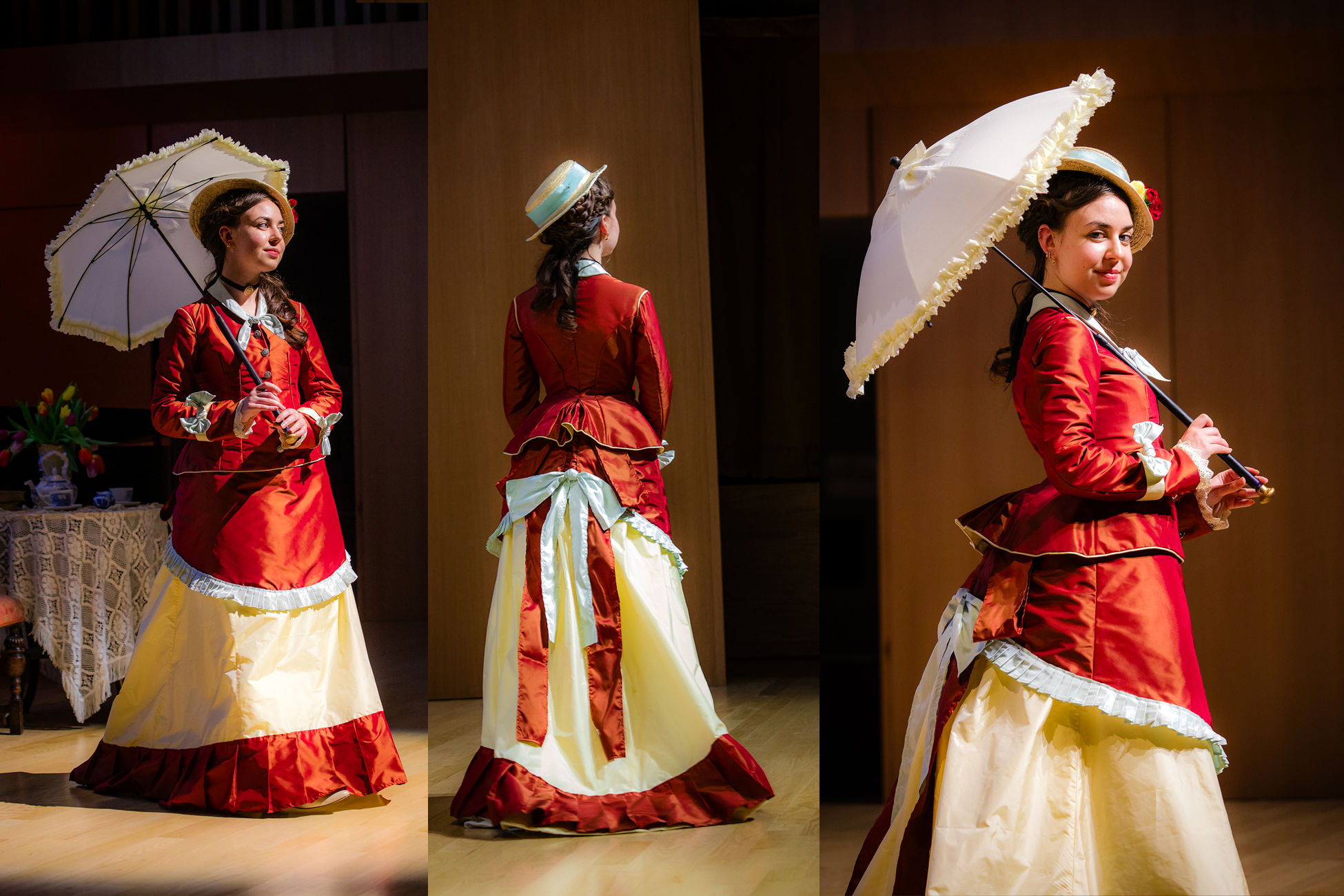Q & A with 2025 Costume Studies graduate Catherine MacCaughan
Cathrine in 1875: A Historical Dress Presentation, wearing her own creation
(photo: Kate Hayter Photography)
Catherine MacCaughan is receiving her Bachelor of Arts with Honours in Theatre, Costume Studies from ÐӰɵ¼º½, with a minor in History and a Certificate in Art History and Visual Culture. Check out this quick read Q & A with Catherine and find out more about her time here at the Fountain School.
Tell us a bit about yourself and life before you started Dalhousie.
I grew up in Gatineau Quebec. Both my parents are historians, and I always thought about going into history. I completed my CÉGEP diploma in Social Sciences and Humanities (specifically anthropology and history) but I was looking into fashion history and design programs. I didn't think it would be possible for me to find a program that was both creative and also history based.
Then I heard about the Costume Studies program at Dalhousie. It made so much sense right from the start. There are a lot of artists and designers in my family. My grandpa used to be a shoe designer so from a young age I was always encouraged develop hands-on skills and create. I also knew I wanted a university degree. Moving to Halifax became my only plan.
What do you think is unique to the Dalhousie’s costume studies program?
I think what makes it really unique is the combination of hands-on work experience and academic studies. I’ve learned so much about sewing and technical skills, but also about proper academic research and methodologies. Perin’s Aesthetic of Historical Dress class is really the culmination of all these concepts you work on so hard learning throughout the degree. That entire year-long class, and the historical dress presentation show, shows you can sew complex garments and are able to do the research to back every single design and construction decision you’ve made.Â
Also, the fact that we get to work on the school’s stage productions gives you an idea of what the real world has to offer. For my honors project I was able to be the costume designer for the the Devised Theatre production, Learning Curve. I saw it as a mini-internship and that's very valuable to me.
I was really glad I was in the role of designer and not just assistant. I was in charge, but also had lots of people and mentors that I could count on for support. It was a great way for me to get experience but still within the university context.
It's a collaborative environment. Yes, there is a hierarchy, but it's also very much about listening to everyone's offers and being open to feedback. Working with fellow students and faculty, being in charge wasn't weird to navigate at all.
What has been the most rewarding part of your time here at the school?
As a fourth-year costume cutter you are trusted with the productions more important costumes. The designer has a vision for what the costume should be, and then you're kind of in charge of making that happen. They provide the fabric, but you have the skills. You have to come up with the patterns, problem solve and make it, seeing the designers sketches come to life. You have to keep track of all your fitting notes and all the changes you make. It feels more real, seeing yourself and the people who contributed to the work, in the end result.
Whether it’s being a cutter for the university’s productions, being designer for Learning Curve, or presenting my final historical outfit during the dress show, it’s very rewarding to have something you’ve worked hard on finally being showcased to others. You get to put all the skills you’ve learned to use and it’s amazing to see how much progress you can make in a few years.
Do you have any advice for students starting the program next year?
The sooner you develop good time management skills, the easier this program will be! It's intense, but you learn so much.
And not just from the classroom stuff, but from being in the studio and working with other people who have similar skills as you. I've learned so much from Anneka Henderson, not just in tailoring class, but while working on productions. Seeing how she organizes and plans, handling different situations and people. That’s the kind of thing that you only get to learn through being close. Observing people who know more than you, watching them function inside of the machine, not just talk about the machine.
How do you think you've changed during your time here?
Moving to Halifax was scary to me partially because of the language difference. Now I’m proud to say I got my degree in my second language.
I’ve learned a lot about myself, what I’m capable of and what my limits are. I’ve truly made a new life for myself here and I’ve gained so many good things from the last four years.


